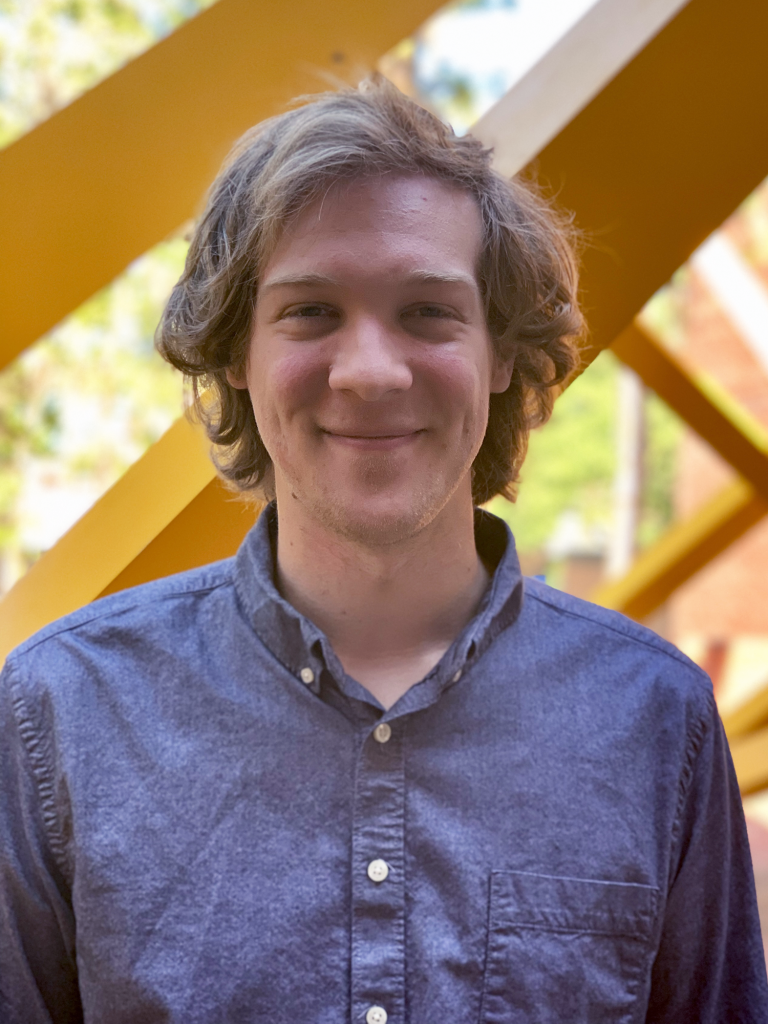 Congratulations to Tyler Hanks, a Ph.D. student in the Department of Computer & Information Science & Engineering (CISE), who has been selected for the 2022 National Science Foundation (NSF) Graduate Research Fellowship Program (GRFP), which recognizes exceptional students who are pursuing full-time research-based master’s and doctoral degrees in science, technology, engineering and mathematics.
Congratulations to Tyler Hanks, a Ph.D. student in the Department of Computer & Information Science & Engineering (CISE), who has been selected for the 2022 National Science Foundation (NSF) Graduate Research Fellowship Program (GRFP), which recognizes exceptional students who are pursuing full-time research-based master’s and doctoral degrees in science, technology, engineering and mathematics.
The NSF GRFP has announced 2,193 Fellows for 2022. Seventeen students at the University of Florida received fellowships. Of the 11 students selected in the Herbert Wertheim College of Engineering, he is the only one chosen from CISE.
“I plan to apply my research across a great breadth of scientific domains, specifically those which contribute to space exploration,” Hanks said. “I believe that human space exploration and colonization can serve as an incredible force for the betterment of humanity if done responsibly and sustainably.”
Hanks is currently a first-year Ph.D. student in CISE under the guidance of James Fairbanks, Ph.D., a CISE assistant professor. Hanks’ current research is at the intersection of applied category theory, machine learning and scientific computing. He is specifically working on generalizing techniques from neural architecture search to a broader class of scientific modeling problems.
“Receiving this fellowship is such an honor. It grants me financial security for the remainder of my Ph.D. years and increases my academic freedom to pursue research I am passionate about,” he said. “Receipt of this award has also increased my motivation to pursue research that achieves both intellectual merit and positive societal impacts. Overall, I am so happy to have been awarded this fellowship, and I couldn’t have done it without UF’s NSF GRF class or the support of my advisor Dr. James Fairbanks and my mentors Dr. Matthew Klawonn and Dr. Jay Ligatti.”
He graduated from the University of South Florida Magna Cum Laude with a B.S. in computer science, and then joined the computer science Ph.D. program in the fall of 2021, after receiving the Herbert Wertheim College of Engineering Dean’s Research Award. After earning his Ph.D., Hanks plans to work in industry for the likes of SpaceX or NASA, where he can directly apply his research and fulfill his dream of contributing to human space exploration.
As the oldest graduate fellowship of its kind, the GRFP has a long history of selecting recipients who achieve high levels of success in their future academic and professional careers. The reputation of the GRFP follows recipients and often helps them become lifelong leaders that contribute significantly to both scientific innovation and teaching.
Fellowships provide the student with a three-year annual stipend of $34,000 along with a $12,000 cost of education allowance for tuition and fees (paid to the institution), as well as access to opportunities for professional development available to NSF-supported graduate students.
NSF Fellows are anticipated to become knowledge experts who can contribute significantly to research, teaching, and innovations in science and engineering. These individuals are crucial to maintaining and advancing the nation’s technological infrastructure and national security as well as contributing to the economic well-being of society at large.
Allison Logan
Marketing & Communications Specialist
Herbert Wertheim College of Engineering